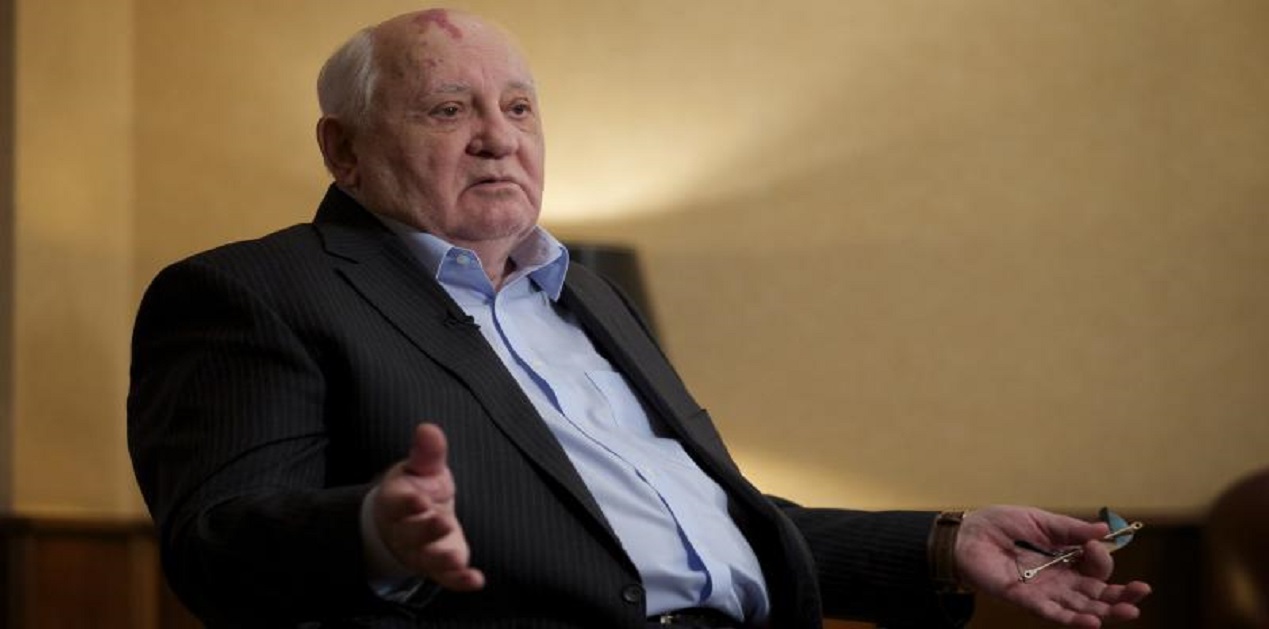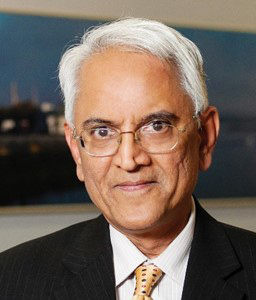Russia’s President Vladimir Putin has frequently been quoted as saying that the breakup of the Soviet Union was the greatest geopolitical disaster of the twentieth century. Mikhail Gorbachev, the last President of the USSR, who passed away in Moscow on Tuesday, at the age of 91, was often reviled in Russia as the principal architect of that “geopolitical disaster”. But he was also admired by many elsewhere, particularly in the former Soviet republics that gained independence, and in the countries that could break free from the claustrophobic embrace of the Warsaw Pact. For these contributions, received the Nobel Peace Prize in 1990.
Gorbachev’s was an unlikely story of a peasant boy from rural Russia, somehow finding his way into an elite Moscow university and then climbing up the greasy pole of Soviet politics, from the district to the national level. If he harboured the liberal convictions that he later professed, he hid them well.
Instead, he was sensitive to the prevailing ideological winds -- moving seamlessly from praising Stalin’s policies to criticising them in the Nikita Khrushchev era, before again adjusting to the post-Khrushchev situation. His energy and erudition powered him up the Soviet leadership ladder, at a time when its aging and ailing leaders were overwhelmed by the mounting challenges of national economic decline, exacerbated by the arms race and the military misadventure in Afghanistan. Gorbachev became the general secretary of the Communist Party of the Soviet Union in 1985, at the relatively young age of 54.
Gorbachev’s ambitious agenda was to democratise the country, open up its economy and promote security through disarmament. The shock treatment that he sought to administer was a combination of political transparency (glasnost) and economic restructuring (perestroika).
He came up against multiple challenges to repairing the decaying economic and social fabric of the country. Entrenched cadres with stubborn mindsets proved difficult to dislodge. His personal traits did not help him to assemble and retain loyal aides to push his agenda. Personality clashes and policy differences frequently retarded progress. The collapse of global oil prices and his ill-timed anti-alcohol campaign severely dented the national budget. The American biographer William Taubman highlights a deeper malaise: Gorbachev’s grand, transformational ideas were not matched by the ability to formulate detailed plans for their execution. Like so many visionaries in history, he lacked the practical and political skills to transform vision into reality.
Like most leaders facing difficulties at home, Gorbachev found solace in the glamour of foreign visits. His message of economic reform and nuclear disarmament was received rapturously by his hosts, particularly in Europe, which was at the cutting edge of the Cold War confrontation. This included the people in Communist Eastern Europe, who hoped that the winds from the promised “Soviet spring” would also cleanse their political systems. But he got little response to his argument that it was in the Western interest to contribute generously to rescue the Soviet economy.
Gorbachev offered ever more concessions to enhance goodwill: unilateral troop reductions, releasing Warsaw Pact countries from the Soviet fold, accepting German re-unification and even its membership of Nato. His interlocutors pocketed his concessions, but continued to give little in return.
It is strange that a leader with the political skills to reach the top of the opaque Soviet system did not have the astuteness to recognise that adulation does not transform to desirable outcomes. Unilateral concession is not an effective gambit for successful diplomacy.
Gorbachev may also have erred in assuming that the West was invested in his political and economic success. Taubman reveals a confidential note from then deputy CIA director Robert Gates to President George H.W. Bush warning that Gorbachev’s reforms could make the Soviet Union an even more formidable adversary. The break-up of the Soviet Union was obviously a better outcome. This may explain why the United States did not really question the constitutional propriety of Boris Yeltsin unseating Gorbachev. The West extended unstinting support to Yeltsin as President of Russia, including for his re-election in 1996, helping him to overcome poor popularity ratings and to ride out allegations of election irregularities. They ignored the erstwhile darling of the West, Nobel laureate Mikhail Gorbachev, who also stood for election and eventually got 0.5 per cent of the vote.
Gorbachev oversaw the beginning of a Sino-Soviet thaw that developed into the Russia-China strategic partnership of today. He visited Beijing during the Tiananmen Square uprising of 1989 -- the first Soviet leader to visit China since 1959. He had to be smuggled into the summit venue by the rear entrance, but (as Vijay Gokhale says in his fascinating book on the uprising) Deng Xiaoping would not be deflected from his determination to use Sino-Soviet relations to create more space for China with the US -- much as he had done with US-China relations vis-à-vis the USSR about two decades earlier.
Gorbachev’s takeaway from the visit (quoted by Taubman) was that he was wise in his strategy of welcoming East European revolutions. The Chinese drew quite the opposite lessons from Gorbachev’s actions. Deng’s son told an American journalist his father thought Gorbachev was an “idiot”: he jeopardised Soviet Communism by putting the cart of political transformation before the horse of economic reform. Gokhale says the Soviet experience has reinforced the conviction of the Chinese Communist Party that it has to maintain its iron grip on the Chinese political system.
Gorbachev had a good connect with India’s then Prime Minister Rajiv Gandhi. Gorbachev’s interpreter has described it as a “total rapport”. This is borne out by some of their conversations on China. Ambassador Ronen Sen has written of a personal letter in which Rajiv Gandhi warned Gorbachev of the centrifugal consequences of glasnost and perestroika. Rajiv Gandhi was in touch with both Gorbachev and President Ronald Reagan, helping their dialogue on strategic arms control and Afghanistan.
From India’s perspective, the collapse of the Soviet Union was not an unmitigated disaster. It jolted India’s political and economic calculus in the immediate term, but over the long term, the country shook off Cold War shibboleths, widened its network of international relationships, benefited from globalisation and technology revolutions, and developed a robust security paradigm.
Gorbachev’s personal foibles and political naiveté should not obscure his legacy of a peaceful end to the Cold War -- given the military arsenals of the two blocs, it could have been bloodier -- creating opportunities for a harmonious post-Cold War order. The ongoing war in Ukraine and Chinese sabre-rattling around Taiwan are reminders that the world has not grasped these opportunities; the blame for this cannot be laid entirely at Gorbachev’s door.











Post new comment